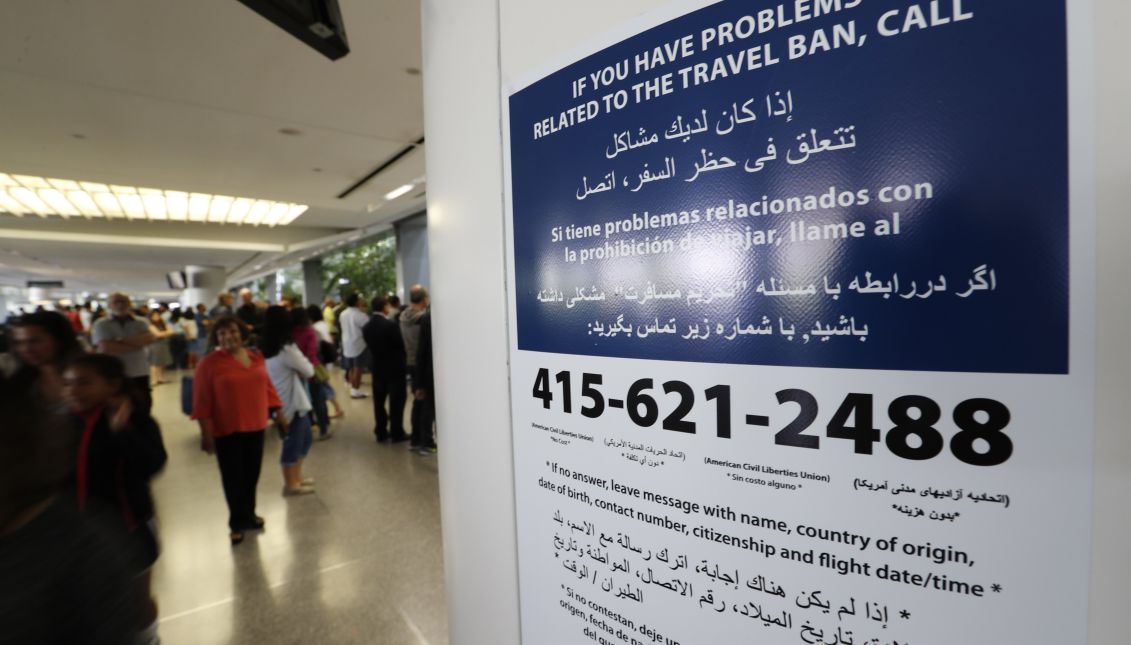
US reviewing refugee requests from 11 unidentified nations
President Donald Trump's ban on refugees entering the United States is no longer in effect and the administration will implement a procedure involving greater…
President Donald Trump's ban on refugees entering the United States is no longer in effect and the administration will implement a procedure involving greater scrutiny of applications, a State Department official told EFE Tuesday on condition of anonymity.
"The suspension of processing refugees ends today, Oct. 24," said the State Department official.
The order issued by Trump makes it more difficult, however, for refugees from 11 unidentified countries to enter the US and they will only be allowed into the country under exceptional circumstances for the next 90 days, while the US government conducts a review of those nations.
The measures "are designed to intensify screening in order to keep nefarious and fraudulent actors from exploiting the refugee process to enter the United States. The measures come at the end of a 120-day 'pause' on refugee resettlement, while the United States government conducted a thorough review of the existing program," the Department of Homeland Security said in a statement.
"The security of the American people is this administration's highest priority, and these improved vetting measures are essential for American security," said Acting Secretary of Homeland Security Elaine Duke.
"These new, standardized screening measures provide an opportunity for the United States to welcome those in need into our country, while ensuring a safer, more secure homeland," she added.
The State and Homeland Security Departments, along with the Office of the Director of National Intelligence, "conducted a review of the United States Refugee Admissions Program application and adjudication process," the goal of which was "to determine what additional procedures should be used to ensure that individuals seeking admission as refugees do not pose a threat to the security and welfare" of the US.
As a result of the review, the US government will implement "program enhancements to raise the bar for vetting and screening procedures, including but not limited to: increased data collection to more thoroughly investigate applicants, better information sharing between agencies to identify threat actors, and new training procedures to strengthen screener ability to detect fraud and deception," DHS said.
The State Department said that it will launch an additional in-depth review into the refugees of the 11 nations previously identified as potentially presenting a greater risk to the US.
RELATED CONTENT
The US government will not identify the 11 nations in question because that would make its efforts to enforce the law more difficult, a government official, requesting anonymity, told reporters.
The ban was issued by Trump last March, but it did not enter into force until June, when it prohibited for 120 days US entry to refugees from all over the world, a term that ended without the president extending it.
People requesting refugee status in the US are already facing a long and strict process that can last years, but Trump has insisted since his election campaign that terrorists could be hiding among those people, and in late September he reduced to 45,000 the maximum number of refugees that may enter the country in Fiscal Year 2018.
The same order by Trump that partially entered into force in June also prohibited US entry for 90 days to citizens from six Muslim-majority nations: Iran, Somalia, Sudan, Syria, Yemen and Libya.
That 90-day period expired a month ago and at the time Trump decided to replace it with a new decree prohibiting US entry to the citizens of those countries, with the exception of Sudan, and he also banned citizens of North Korea and some Venezuelan officials from entering this country.
That ban entered into force last week, but only for North Korea and Venezuela due to court action.










LEAVE A COMMENT:
Join the discussion! Leave a comment.